In the ever-evolving digital landscape, social mediahas emerged as a powerful tool for businesses to connect with their target audience. Beyond its role in fostering engagement and brand awareness, social media also has the potential to significantly impact Search Engine Optimization(SEO) results. In this article, we will explore how can social media improve SEO results, providing businesses with a competitive edge in the digital realm. By effectively utilizing social media platforms, businesses can enhance their online visibility, drive website traffic, and improve their rankings on search engineresult pages.
Does Social Media Improve SEO?
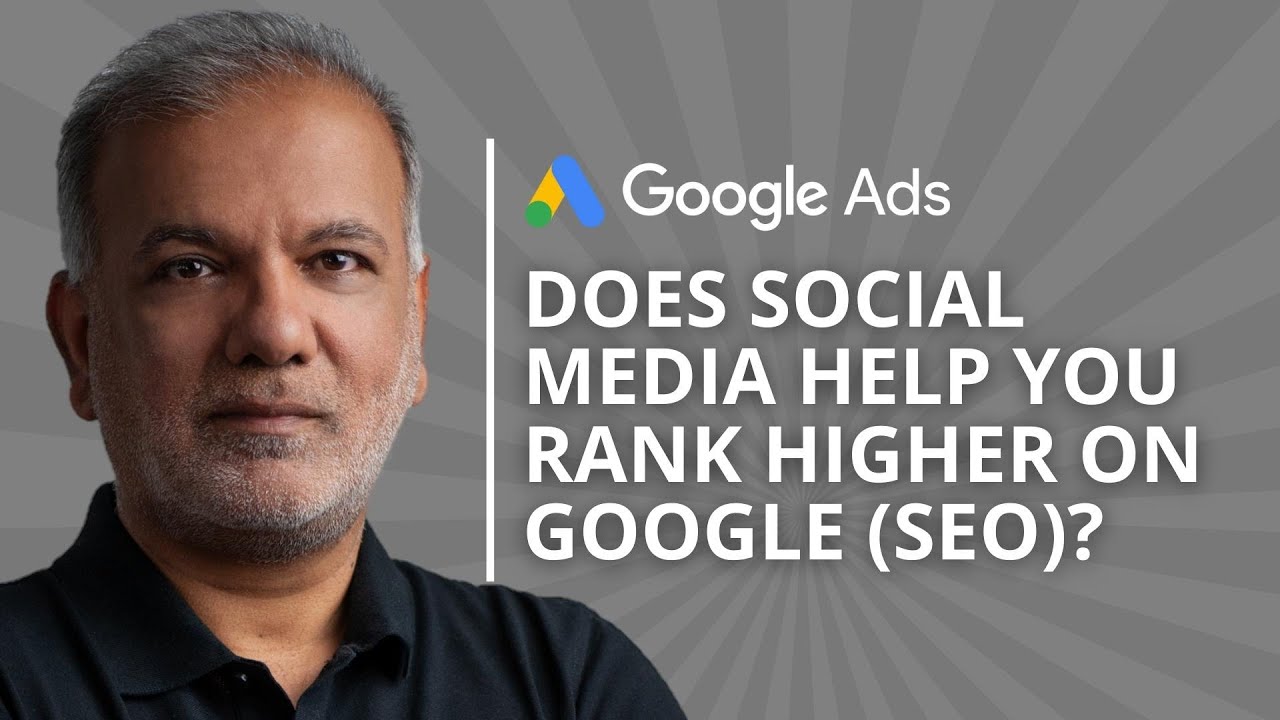
How Does Social Media Affect SEO - Does Social Media Help You Rank Higher On Google (SEO)?
Social media can indeed improve SEO(Search Engine Optimization) results. While social media platforms themselves do not have a direct impact on search engine rankings, they play a significant role in enhancing various aspects of SEOthat can lead to improved visibility and higher rankings in search engine results pages (SERPs). Here are some key ways in which social media can positively influence SEO:
- Increased Website Traffic -Sharing valuable content, promotions, and links to your website on social media can drive significant traffic to your site. The higher the traffic, the better your website can perform in search engine rankings.
- Enhanced Brand Visibility and Awareness - Establishing a strong brand presence on social media platforms can increase brand visibility and awareness. When people engage with your brand on social media, it increases the chances of them searching for your brand on search engines, which can improve your SEO rankings.
- Social Signals and Search Engine Rankings -Social media activities generate social signals such as likes, shares, comments, and followers. Search engines take these signals into consideration when determining the ranking of web pages. The more engagement your content receives on social media, the higher it is likely to rank in search engine results.
- Quality Backlinksand Social Media -Backlinks, or inbound links from other websites to yours, are an essential factor in SEO. Social media can be a powerful platform for generating high-quality backlinks. When your content is shared and linked to on social media, it increases the chances of other websites linking to it as well, thereby improving your website's SEO performance.
- Social Media Profiles in Search Results -Search engines often include social media profiles in search results, particularly when users search for a specific brand or company. By optimizing your social media profiles and regularly updating them with relevant content, you can increase your chances of appearing prominently in search results and gaining more visibility.
How Does Social Media Help With Search Engine Rankings?

How To Use Social Media For SEO
Social media can help with search engine rankings in several ways:
- Social Signals -Social media platforms generate social signals such as likes, shares, comments, and followers. Search engines consider these signals as indicators of the popularity and relevance of your content. When your content receives a high level of engagement on social media, it can positively impact your search engine rankings.
- Increased Website Traffic - Sharing your website content on social media can drive traffic to your site. When more users visit your website through social media referrals, it signals to search engines that your site is valuable and relevant. Increased website traffic can contribute to improved search engine rankings.
- Content Indexing -Search engines frequently crawl social media platforms and index their content. By having a presence on social media and regularly posting relevant content, you increase the chances of search engines indexing your content faster. Indexed content has a higher likelihood of appearing in search engine results.
- Backlink Opportunities -Social media provides opportunities for obtaining backlinks, which are links from other websites to yours. When your content is shared on social media and linked to other websites, it increases the number of quality backlinks pointing to your site. Backlinks are an important ranking factor for search engines, and having reputable websites linking to your content can positively impact your search engine rankings.
- Brand Visibility and Reputation -Active engagement on social media helps increase your brand's visibility and reputation. When users interact with your brand, share your content, or mention your brand on social media, it creates a digital footprint that search engines take into consideration. Positive brand mentions and a strong online reputation can contribute to better search engine rankings.
- Social Media Profiles in Search Results -Search engines often display social media profiles alongside website results in search engine rankings. Optimizing your social media profiles, using relevant keywords, and regularly updating them with valuable content can increase the visibility of your profiles in search results. This can lead to improved brand recognition and increased click-through rates on your website.
How Can Social Media Improve SEO Results?
Increased Website Traffic
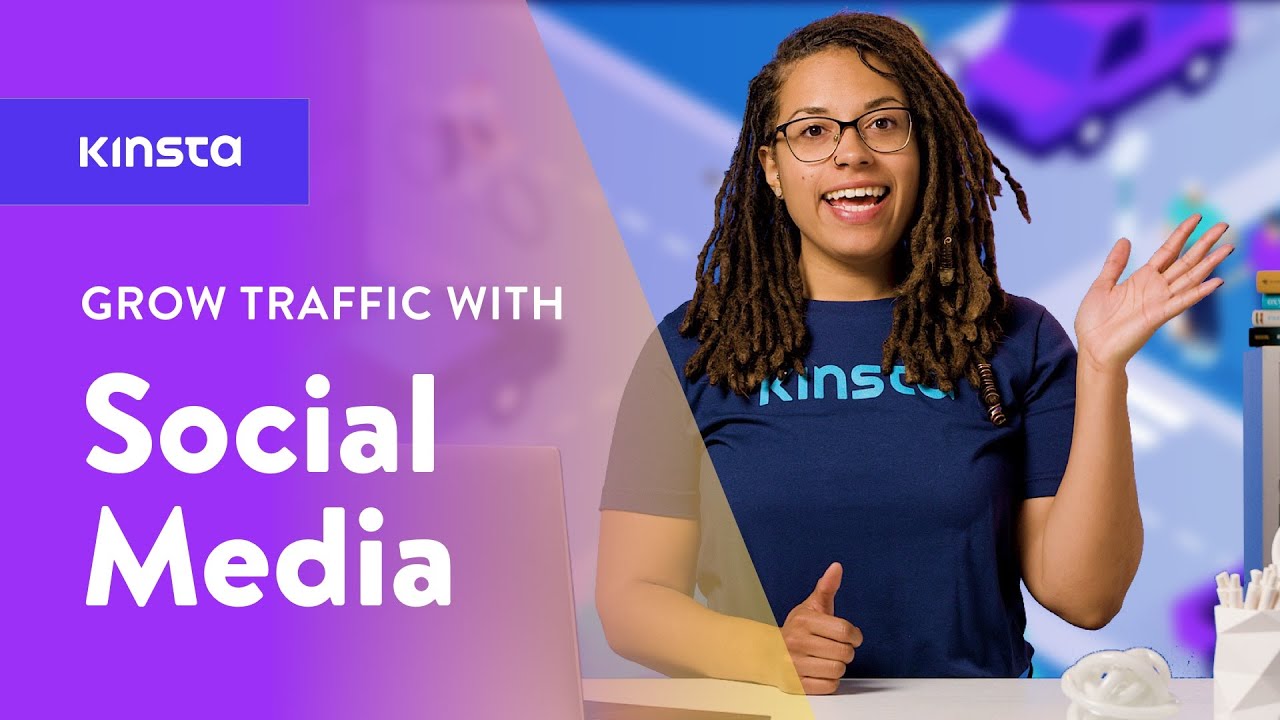
How to Increase Website Traffic with Social Media
One of the key ways in which social media can improve SEO results is by driving increased website traffic. Here's a closer look at how social media contributes to boosting website traffic:
- Sharing Valuable Content -Social media platforms provide a powerful channel to share valuable content from your website with your followers and target audience. When you share engaging and relevant content, it captures the attention of your social media followers and encourages them to click on the links and visit your website.
- Expanded Reach and Viral Potential -Social media platforms have a massive user base, which means that your content has the potential to reach a broader audience. When your followers engage with your content by liking, sharing, or commenting on it, it increases the visibility of your posts and exposes them to a wider audience. If your content goes viral or gains significant traction on social media, it can result in a significant increase in website traffic.
- Click-Through from Social Media Posts -By including links to your website in your social media posts, you provide an easy way for your followers to access your website directly. Whether it's a blog post, a product page, or a landing page, strategically placing links in your social media posts can drive traffic to specific pages on your website.
- Promotional Campaigns and Offers -Social media platforms are an excellent avenue to promote special offers, discounts, or limited-time deals. By creating compelling promotional campaigns and sharing them on social media, you can entice your audience to visit your website to take advantage of the offer. This can result in a surge of traffic during the campaign period.
- Cross-Promotion and Collaboration -Social media allows for collaboration and cross-promotion with other businesses or influencersin your industry. By partnering with complementary brands or influencers and mutually promoting each other's content or products, you can tap into their audience and drive traffic to your website. This collaboration introduces your brand to a new audience, increasing the chances of acquiring new website visitors.
- Social Media Advertising-Many social media platforms offer advertising options that allow you to target specific demographics, interests, and behaviors. By running targeted ad campaigns, you can reach a highly relevant audience and direct them to your website. Social media advertising can be an effective way to increase website traffic, especially when combined with compelling ad copy and engaging visuals.
Enhanced Brand Visibility And Awareness
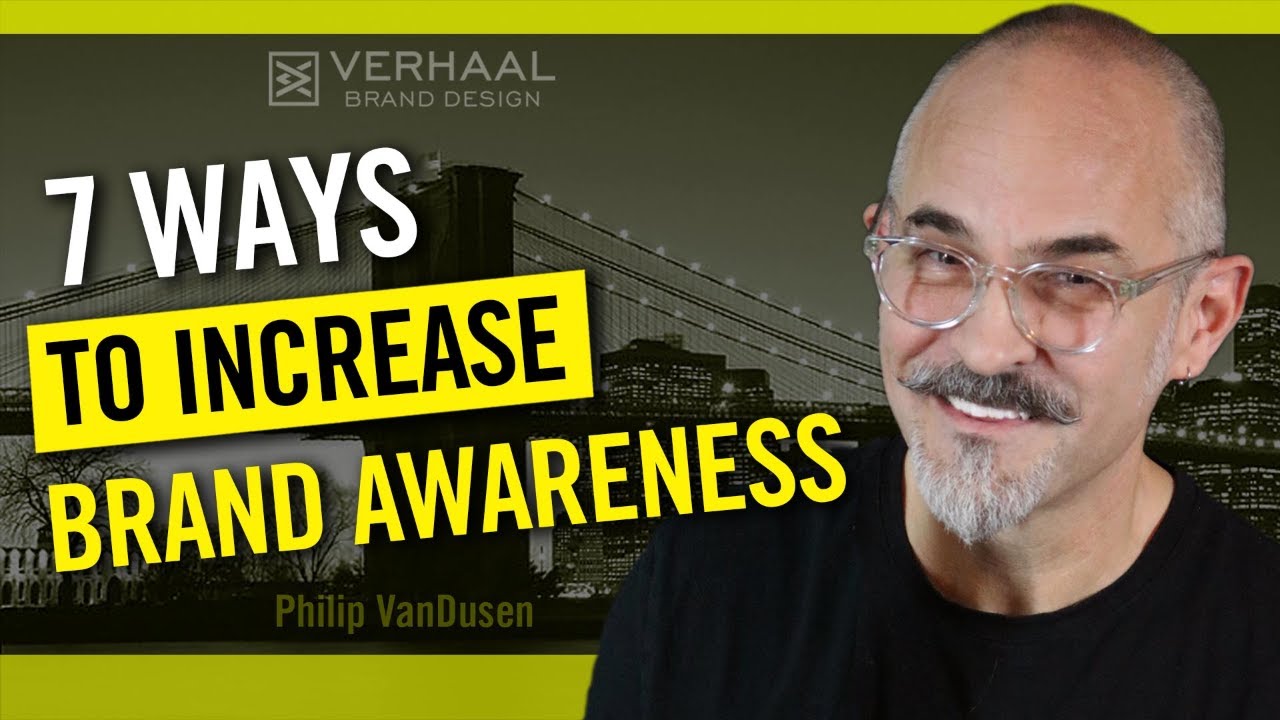
7 Ways To Increase Brand Awareness and Build Your Business
Social media platforms play a crucial role in enhancing brand visibility and awareness, which in turn can contribute to improved SEO results. Here's a closer look at how social media helps businesses boost their brand visibility and awareness:
- Expanded Reach to a Wider Audience -Social media platforms have billions of active users, providing businesses with an extensive audience to connect with. By establishing a presence on social media and consistently sharing valuable content, businesses can reach a larger pool of potential customers. Increased visibility to a wider audience helps create brand awareness and exposes more people to your brand.
- Engagement and Interaction -Social media allows businesses to directly engage with their target audience through comments, likes, shares, and direct messages. By actively responding to customer queries, providing helpful information, and fostering conversations, businesses can build a rapport with their audience. Positive interactions on social media create a favorable impression of the brand and contribute to increased brand awareness.
- Content Virality and Shareability -Social media platforms thrive on the sharing and viral spread of content. When businesses create compelling and shareable content, it has the potential to go viral and reach a massive audience within a short span of time. Viral content not only generates buzz but also significantly increases brand visibility and exposure.
- Influencer Collaborations -Collaborating with influencers or industry experts on social media can greatly amplify brand visibility. Influencers have their own loyal following, and when they endorse or mention your brand, it exposes your businessto their audience. This collaboration helps expand brand reach, gain credibility, and increases awareness among new potential customers.
- Brand Advocacy and User-Generated Content -Social media platforms provide a space for customers to express their experiences, opinions, and recommendations about brands. When satisfied customers become brand advocates and share positive feedback, it creates a domino effect, influencing others to become aware of and engage with your brand. User-generated content, such as reviews, testimonials, and customer photos, further strengthens brand visibility and fosters trust among potential customers.
- Social Media Advertising -Social media advertising options allow businesses to target specific demographics, interests, and behaviors. By running targeted ad campaigns, businesses can reach their ideal customer base and increase brand visibility among relevant audiences. Paid advertising on social media platforms can significantly enhance brand awareness, especially when combined with compelling ad copy, captivating visuals, and strategic targeting.
Social Signals And Search Engine Rankings
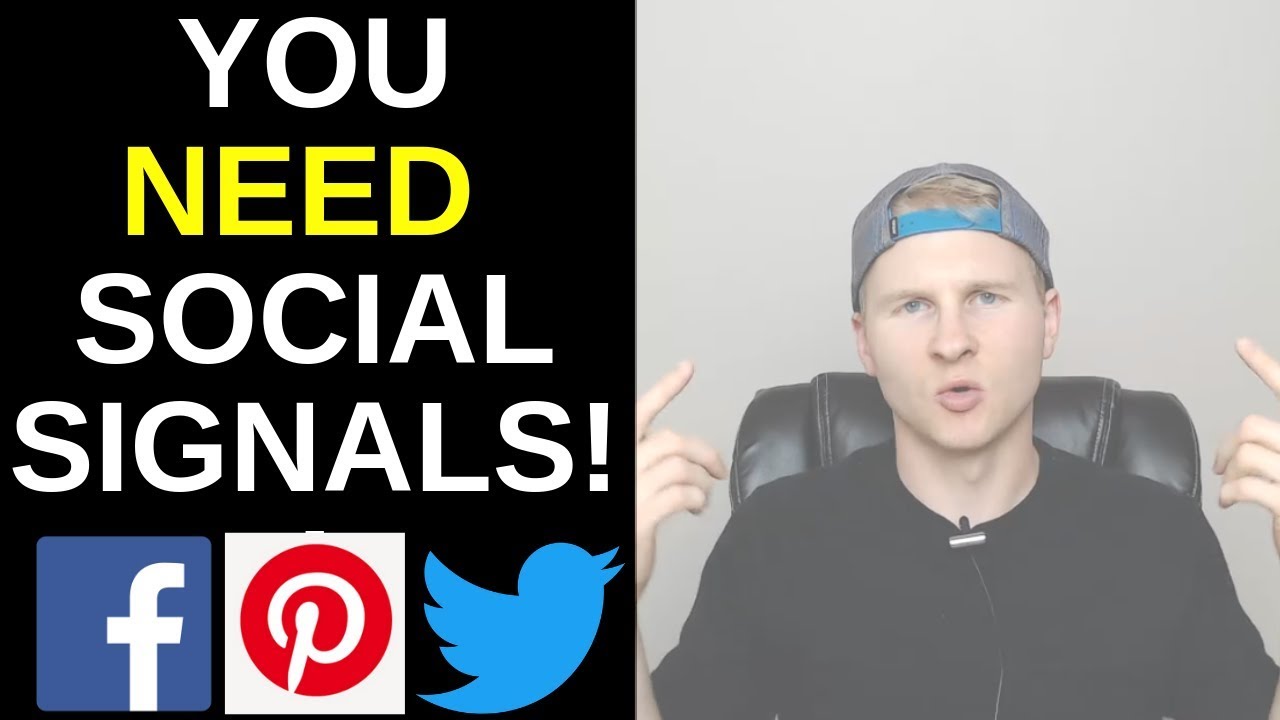
Why You MUST Use Social Signals As Part Of Your SEO Strategy To Rank on Page 1 Google
Social signals generated by social media activities can have an impact on search engine rankings. While search engines like Google have not explicitly stated that social signals directly influence rankings, there is evidence to suggest a correlation between social signals and improved search engine rankings. Here's how social signals can potentially impact search engine rankings:
- Indicators of Relevance and Popularity -Social signals such as likes, shares, comments, and followers can be seen as indicators of content relevance and popularity. When a piece of content receives significant social engagement, it suggests that the content resonates with users and is valuable. Search engines may interpret these signals as a sign of quality, leading to improved search engine rankings for that content.
- Increased Traffic and Engagement -When content receives social signals, it often leads to increased website traffic as users click on the shared links to visit the original source. Higher traffic and engagement metrics can indirectly impact search engine rankings. When search engines observe that a webpage is receiving substantial traffic and user engagement, it suggests that the page is valuable and relevant to users, potentially leading to improved rankings.
- Link BuildingOpportunities -Social media provides a platform for sharing and distributing content. When high-quality content is shared and linked to from social media, it can attract the attention of other website owners, bloggers, and influencers who may reference or link to the content on their own websites. These organic backlinks can positively impact search engine rankings by indicating to search engines that the content is valuable and deserving of higher visibility.
- Social Media Profile Visibility -Search engines often include social media profiles in their search results. When users search for a specific brand or company, search engines may display relevant social media profiles alongside website listings. Optimizing social media profiles with relevant keywords, consistent branding, and valuable content can increase their visibility in search results, leading to improved brand visibility and potentially influencing search engine rankings.
- Content Indexing and Discovery -Social media platforms are frequently crawled by search engine bots, leading to faster indexing of content shared on social media. When content is indexed quickly, it has a higher chance of appearing in search engine results. By actively sharing and promoting content on social media, businesses can enhance the discoverability and indexability of their content, potentially leading to improved search engine rankings.
Quality Backlinks And Social Media
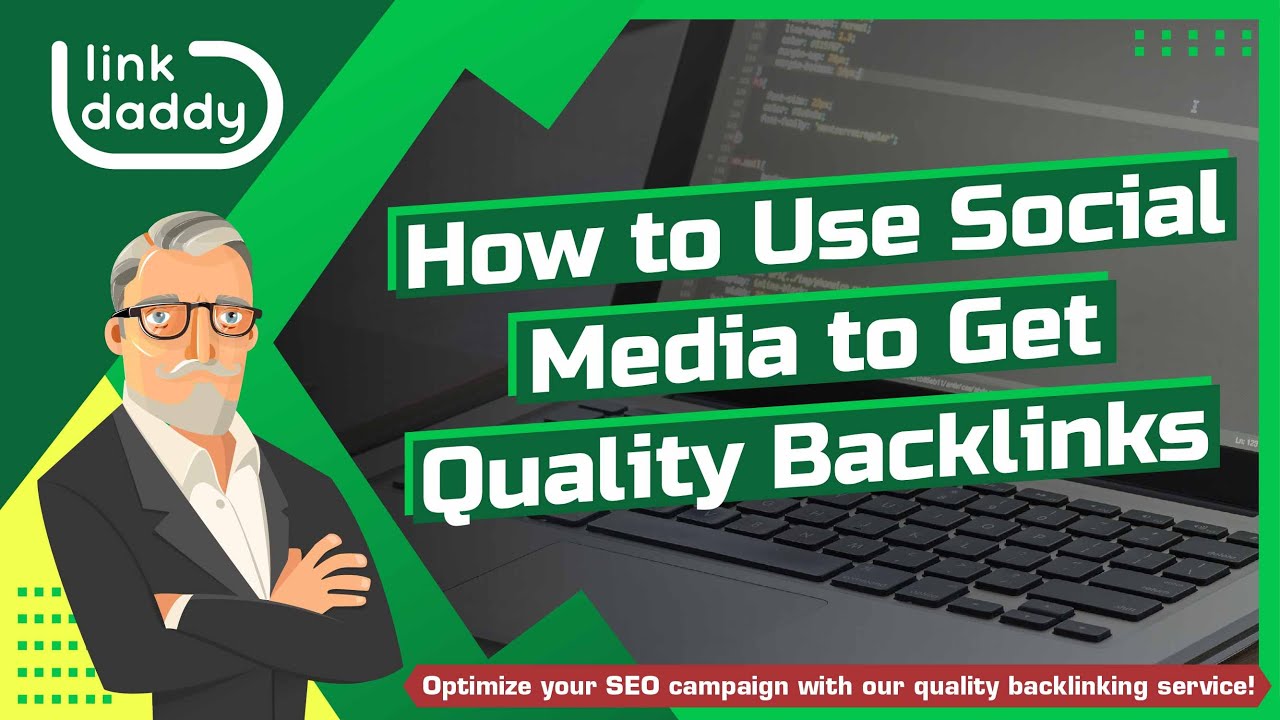
How to Use Social Media to Get Quality Backlinks
Social media can be a valuable platform for generating high-quality backlinks, which are important for improving search engine rankings. Here's how social media can contribute to obtaining quality backlinks:
- Content Promotion and Sharing -When you share your website content on social media platforms, it increases the likelihood of other users discovering and engaging with it. If your content is valuable and relevant, there is a higher chance that others will link to it from their websites or blogs. By promoting your content on social media, you increase its visibility and create opportunities for others to link back to your website.
- Influencer Collaboration -Collaborating with influencers or industry experts on social media can help you gain backlinks from their websites or blogs. When influencers endorse or mention your brand or content, it can lead to them linking to your website as a reference or source. Influencer collaborations provide an avenue for acquiring authoritative backlinks that can positively impact your search engine rankings.
- Content Curation and Republishing -Social media platforms allow users to curate and republish content from other sources. If your content is compelling and valuable, it may catch the attention of content curators or social media influencers who may republish it on their websites or blogs, giving you credit for a backlink. This can help expand your reach, attract more traffic, and generate quality backlinks.
- Engagement and Relationship Building -Actively engaging with your social media audience can lead to relationship-building opportunities. When you establish connections and build relationships with individuals or businesses in your industry, it increases the likelihood of them linking to your website. Engaging in meaningful conversations, providing valuable insights, and demonstrating expertise on social media can make others perceive you as a trusted resource worth linking to.
- Guest Posting Opportunities -Social media platforms can serve as a gateway to identify guest posting opportunities. By networking with industry professionals and monitoring relevant discussions, you can discover guest blogging opportunities. Guest posting allows you to contribute content to external websites in exchange for a backlink. Engaging with the blogging community on social media can help you find guest posting opportunities that can boost your backlink profile.
- Social Bookmarking and Content Discovery Platforms -Social bookmarking and content discovery platforms such as Reddit, StumbleUpon, and Pinterest can expose your content to a wider audience. If your content gains traction and becomes popular on these platforms, it increases the likelihood of others linking to it on their websites or blogs. These platforms can help you attract organic backlinks and improve your search engine rankings.
Social Media Profiles In Search Results

Social Media Optimization Tricks: Get Your Profiles Ranking On Google
Social media profiles can appear in search engine results, providing additional visibility for your brand and enhancing your online presence. Here's how social media profiles can show up in search results:
- Brand Name Search -When users search for your brand name specifically, search engines often display your social media profiles alongside your website in the search results. This allows users to quickly access and engage with your social media presence, helping to reinforce brand recognition and provide multiple avenues for users to connect with your brand.
- Social Media Platform Searches -Users frequently search for specific social media platforms or keywords related to social media. If your social media profiles are optimized with relevant keywords and have a strong presence, they can rank in search results for these platform-specific searches. This visibility increases the chances of attracting new followers, expanding your social media audience, and driving more traffic to your profiles.
- Personal Brandingand Influencer Searches -Individuals who have established a strong personal brand or are influencers in their industry often have their social media profiles prominently displayed in search results. This is because search engines recognize the authority and influence these individuals have on social media platforms. Optimizing your personal branding efforts and engaging with your audience can increase the likelihood of your social media profiles appearing in search results for relevant queries.
- Image and Video Searches -Social media platforms are rich in visual content. When users conduct image or video searches, search engines may display social media posts or profiles that contain relevant visual content. By incorporating visual elements into your social media posts and optimizing them with descriptive captions and tags, you can increase the chances of your social media profiles appearing in image and video search results.
- Local Searches -Social media profiles can also show up in local search results. When users search for businesses or services in a specific location, search engines may display social media profiles alongside businesslistings. Optimizing your social media profiles for local SEO, including your location and relevant keywords, can help increase the visibility of your profiles in local search results.
Local SEO And Social Media
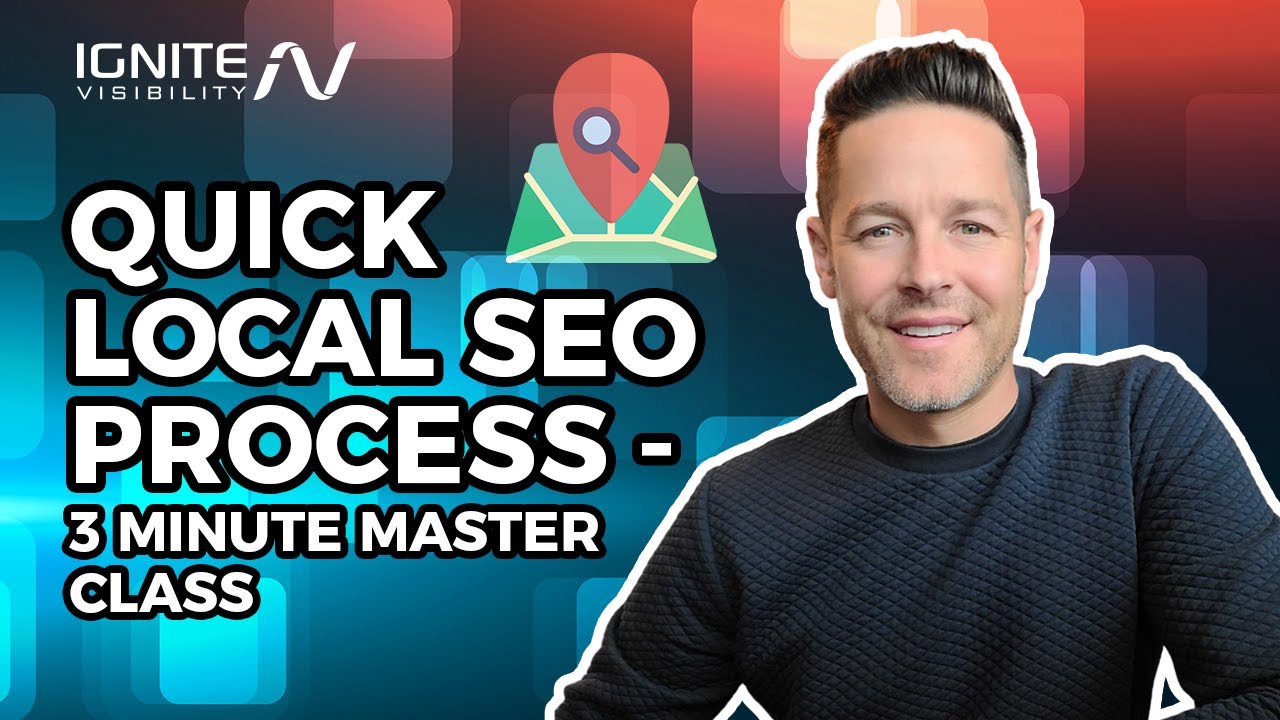
3 Minute Masterclass: Quick Local SEO
Local SEO and social media can work hand in hand to improve your online visibility, attract local customers, and drive foot traffic to your physical store or local business. Here's how you can leverage social media to enhance your local SEO efforts:
- Optimize Your Social Media Profiles for Local SEO -Ensure that your social media profiles are fully optimized for local search. Include your business name, address, phone number (NAP), and website URL consistently across all your profiles. This consistency helps search engines associate your social media profiles with your local business and improves the chances of appearing in local search results.
- Local Content and Geo-targeted Posts -Create content on your social media platforms that is specific to your local audience. Share updates about local events, news, promotions, or partnerships. Use location-specific keywords and hashtags in your social media posts to target users who are searching for local information. This helps improve your local relevance and visibility in search results.
- Encourage Customer Reviews and Check-ins -Positive customer reviews on social media platforms like Facebook, Google My Business, or Yelp can have a significant impact on local SEO. Encourage your customers to leave reviews and check in at your business location on social media. Positive reviews and check-ins serve as social proof and can improve your local rankings.
- Location-based Targeting in Social Media Advertising -When running paid social media campaigns, leverage location-based targeting options to reach users in your local area. Platforms like Facebook and Instagram allow you to target users based on their geographic location, ensuring your adsare seen by relevant local audiences. This can help drive targeted traffic to your physical store or local business.
- Local Influencer Collaborations -Collaborating with local influencers or micro-influencers can amplify your local SEO efforts. Identify influencers who have a strong local following and align with your brand values. Partner with them to promote your products or services on social media, generating local buzz, and increasing your brand visibility within the local community.
- Geo-tagging and Location-based Hashtags -When posting content on social media, utilize geo-tagging features to tag your business location or the specific locations relevant to your content. Additionally, incorporate location-based hashtags in your posts to increase the discoverability of your content by local users searching for specific locations or topics.
- Engage with Local Communities and Organizations - Actively engage with local communities and organizations on social media. Participate in local events, share relevant local news or stories, and collaborate with local charities or initiatives. This involvement demonstrates your commitment to the local area and helps build relationships with other local businesses, which can result in valuable local backlinks and increased local visibility.
People Also Ask
Can Social Media Profiles Rank In Search Engines?
Social media profiles can rank in search engines. Search engines recognize the importance of social media in the online ecosystem and often display social media profiles alongside websites in search results, enhancing brand visibility and online presence.
Does Social Media Activity Impact Website Traffic For SEO?
Social media activity can drive significant website traffic, positively impacting SEO. By sharing valuable content, promotions, and links to your website on social media, you increase the chances of users clicking through to your site and improving overall website traffic.
How Can Social Media Listening Help Improve SEO?
Social media listening allows businesses to monitor conversations and gain insights into customer opinions, preferences, and trends. By identifying relevant keywords, popular topics, and content ideas through social media listening, businesses can optimize their website content and SEO efforts to enhance online visibility and improve SEO results.
Conclusion
In today's digital era, social media has become an indispensable element of any comprehensive SEO strategy. By harnessing the power of social media platforms, businesses can unlock numerous benefits, ranging from increased website traffic and brand visibility to improved search engine rankings. As businesses continue to adapt and evolve in the digital landscape, integrating social media into their SEO efforts will prove to be a crucial step toward long-term success and sustainable growth.